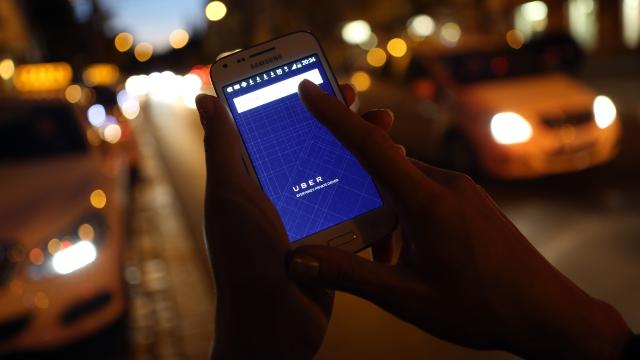Gig work companies were stymied this week in their quest to upend traditional worker classifications.
On Tuesday, the Massachusetts Supreme Court ruled against companies like Uber and Lyft who supported a ballot initiative that, if passed, would have classified so-called “gig workers” as independent contractors rather than employees. In their unanimous ruling, the court criticised the unconstitutional proposal for being based on “vaguely worded provisions.”
Uber, Lyft, DoorDash, and other companies reportedly spent $US17.8 ($25) million backing the proposal. If passed, the ballot initiative would have resulted in an estimated 200,000 Massachusetts drivers being labelled as independent contractors. Opponents of the proposal feared that categorization would strip these workers of benefits and other workplace protections. Gig companies, for their end, have said a requirement to recognise their workers as employees would drive up costs, which they would potentially have to tack on to their users.
Still, despite the companies’ millions in spending, the proposal appears to have failed, in large part, because it was extremely poorly written. According to the Boston Globe, the court said the petitions contained “multiple subjects that are not related” which amounts to a violation of the Massachusetts constitution. Lawmakers, judges, and lawyers reportedly had to scratch their heads to make sense of the proposal’s actually meaning. The court also reportedly zeroed in on a section of the proposal that would have said drivers were “not an employee or agent,” which could have reportedly prevented workers from taking legal action against their employers in the case of an accident or crime.
“When even lawyers and judges cannot be sure of the meaning of the contested provisions, it would be unfaithful to [the Constitution] to allow the petition to be presented to the voters,” Justice Scott L. Kafker said in his ruling according to the Globe.
Massachusetts is Not For Sale Coalition, a labour activist group and vocal opponent of the proposed ballot initiative, cheered on the court’s ruling.
“Millions of Massachusetts drivers, passengers, and taxpayers can rest easier knowing that this unconstitutional bid by Big Tech CEOs to manipulate Massachusetts law has been struck down by the Supreme Judicial Court.” Massachusetts Is Not For Sale Campaign Director Wes McEnany said in a statement. “The ballot question was written not only as an attempt to reduce the rights of drivers but also would have put the rights of passengers and the public at risk. The ballot question would have allowed these companies to avoid their most basic responsibilities to provide safe and reliable transportation service.”
Uber and Lyft did not immediately respond to Gizmodo’s request for comment. Flexibility & Benefits for Massachusetts Drivers, a group pushing for the proposal, meanwhile told Gizmodo in an email the proposal would have passed if it had been allowed to go up for a vote.
“A clear majority of Massachusetts voters and rideshare and delivery drivers both supported and would have passed this ballot question into law,” Flexibility & Benefits for Massachusetts Drivers said. “That’s exactly why opponents resorted to litigation to subvert the democratic process and deny voters the right to make their own decision. The future of these services and the drivers who earn on them is now in jeopardy, and we hope the legislature will stand with the 80% of drivers who want flexibility and to remain independent contractors while having access to new benefits.”
The Massachusetts strike down marks a major blow for gig work companies and comes a little less than a year after a judge struck down a similar California initiative as unconstitutional. That case revolved around Prop 22, a highly contentious 2020 ballot initiative supported by Uber and Lyft which would have exempted gig workers from state labour laws. The judge, Frank Roesch of the Alameda County Superior Court, ruled that proposition was unconstitutional because it restricted, “the power of a future legislature to define app-based drivers as workers.”
Gig work companies have ramped up efforts in recent years to entrench their business models in state governments. These companies are currently attempting to strike deals in New York and Washington State, and have reportedly even been in talks with major unions like the Service Employees International Union and Teamsters.
The Massachusetts Court’s Emphatic rejection suggests firms like Uber and Lyft may be forced to reckon with stronger opposition than once thought.
